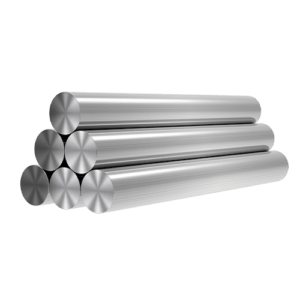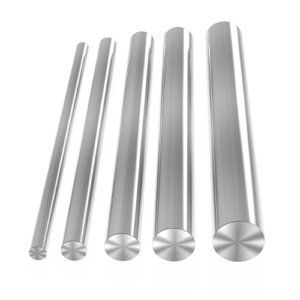Welcome to My Blog!
Before we dive into the content, I’d love for you to join me on my social media platforms where I share more insights, engage with the community, and post updates. Here’s how you can connect with me:
Facebook:https://www.facebook.com/profile.php?id=100090063158454
Now, let’s get started on our journey together. I hope you find the content here insightful, engaging, and valuable.
Introduction

In the world of kitchen appliances, the choice of materials significantly impacts the quality, durability, and aesthetic appeal of the products. Among various materials, stainless steel has emerged as a popular choice, particularly the China stainless steel variety. This article explores why China stainless steel is ideal for kitchen appliances, delving into its properties, advantages, and applications. We will cover the following aspects to provide a comprehensive understanding:
- The Characteristics of China Stainless Steel
- Comparing China Stainless Steel with Other Materials
- The Benefits of Using China Stainless Steel in Kitchen Appliances
- Quality Control and Manufacturing Processes
- Applications of China Stainless Steel in Kitchen Appliances
- Future Trends in Stainless Steel for Kitchen Appliances
- Conclusion
- FAQ
The Characteristics of China Stainless Steel
China stainless steel, also known as Chinese stainless steel, is renowned for its distinctive qualities that make it a preferred choice for kitchen appliances. Here are some key characteristics:
Composition and Grades
China stainless steel is available in various grades, each with its unique composition and properties. The most common grades used in kitchen appliances include:
| Grade | Composition | Characteristics |
|---|---|---|
| 304 | 18% Cr, 8% Ni | Corrosion-resistant, good formability |
| 316 | 16% Cr, 10% Ni, 2% Mo | Superior corrosion resistance, ideal for harsh environments |
Corrosion Resistance
One of the most significant advantages of stainless steel is its excellent corrosion resistance. This property is primarily due to its chromium content, which forms a passive layer of chromium oxide on the surface. This layer protects the steel from rust and stains, making it ideal for kitchen environments where exposure to moisture and acidic substances is common.
Durability and Strength
China stainless steel is known for its high tensile strength and durability. This makes it resistant to impacts, scratches, and deformation, ensuring that kitchen appliances made from this material can withstand daily wear and tear.
Aesthetic Appeal
The sleek, shiny appearance of stainless steel adds a modern and sophisticated touch to kitchen appliances. Its reflective surface can enhance the overall look of a kitchen, complementing various interior designs.
Comparing China Stainless Steel with Other Materials
When choosing materials for kitchen appliances, it’s crucial to compare them against other options. Here’s a comparison of China stainless steel with some alternative materials:
| Material | Corrosion Resistance | Durability | Aesthetic Appeal | Cost |
|---|---|---|---|---|
| China Stainless Steel | High | High | High | Moderate |
| Aluminum | Moderate | Moderate | Moderate | Low |
| Plastic | Low | Low | Low | Low |
| Carbon Steel | Low | High | Low | Low |
Corrosion Resistance
Compared to aluminum and carbon steel, China stainless steel offers superior corrosion resistance. Unlike plastic, which can degrade over time, stainless steel maintains its integrity even in harsh conditions.
Durability
While carbon steel is durable, it lacks the corrosion resistance of stainless steel. Aluminum and plastic are less durable and prone to wear and tear, making stainless steel a more reliable choice for long-term use.
Aesthetic Appeal
China stainless steel stands out for its high aesthetic value. It provides a sleek, polished look that enhances the overall design of kitchen appliances, unlike plastic and carbon steel, which can look outdated or less refined.
Cost
Stainless steel offers a balanced cost-to-benefit ratio. Although it is more expensive than plastic and aluminum, it provides greater durability and aesthetic appeal, making it a worthwhile investment for high-quality kitchen appliances.
The Benefits of Using China Stainless Steel in Kitchen Appliances
Longevity and Reliability
Kitchen appliances made from China stainless steel are known for their longevity. The material’s durability ensures that appliances resist damage and wear, leading to fewer replacements and repairs over time.
Hygiene and Cleanliness
The non-porous surface of stainless steel makes it highly hygienic. It does not harbor bacteria or other pathogens, which is crucial in a kitchen environment. The smooth surface is also easy to clean, reducing maintenance efforts.
Heat Resistance
China stainless steel can withstand high temperatures without warping or degrading. This property is particularly beneficial for kitchen appliances that are exposed to heat, such as ovens and cooktops.
Environmental Impact
China stainless steel is recyclable, making it an environmentally friendly choice. The recycling process reduces waste and conserves natural resources, contributing to sustainable manufacturing practices.
Quality Control and Manufacturing Processes
Rigorous Testing
To ensure the highest standards, stainless steel undergoes rigorous testing. This includes tests for corrosion resistance, tensile strength, and durability. Manufacturers adhere to international standards to guarantee product quality.
Advanced Technology
China utilizes advanced technology and equipment in the manufacturing process of stainless steel. Modern techniques such as precision casting and automated finishing ensure that the final product meets stringent quality requirements.
Skilled Workforce
The production of China stainless steel involves skilled professionals who are trained to handle complex manufacturing processes. Their expertise contributes to the high quality and consistency of the material.
Certifications and Standards
Manufacturers of stainless steel adhere to various certifications and standards, such as ISO 9001 for quality management and ASTM for material specifications. These certifications ensure that the stainless steel meets global quality benchmarks.
Applications of China Stainless Steel in Kitchen Appliances
Refrigerators
China stainless steel is commonly used in refrigerator exteriors due to its resistance to rust and stains. Its sleek appearance also adds a modern touch to kitchen appliances.
Dishwashers
The durability and corrosion resistance of China stainless steel make it ideal for dishwashers. It can withstand frequent exposure to water and detergents without degrading.
Ovens and Cooktops
Ovens and cooktops made from stainless steel benefit from the material’s heat resistance. It ensures that these appliances maintain their integrity and performance even at high temperatures.
Sinks and Countertops
China stainless steel is a popular choice for kitchen sinks and countertops due to its hygienic properties and ease of cleaning. Its durability also makes it suitable for heavy-duty use.
Future Trends in Stainless Steel for Kitchen Appliances

Innovation in Material Composition
Future developments in stainless steel may involve innovative compositions that enhance properties such as corrosion resistance and durability. Researchers are exploring new alloy combinations to improve the performance of stainless steel in kitchen appliances.
Sustainable Manufacturing Practices
The trend towards sustainability is expected to influence the production of stainless steel. Manufacturers are likely to adopt more eco-friendly practices and explore ways to reduce the environmental impact of stainless steel production.
Enhanced Aesthetic Options
As design preferences evolve, there may be an increase in aesthetic options for China stainless steel. Manufacturers might offer a wider range of finishes and textures to cater to diverse consumer tastes.
Smart Integration
The integration of smart technology in kitchen appliances may also extend to stainless steel components. Future appliances might feature stainless steel surfaces that incorporate touch controls or other advanced features.
Conclusion
China stainless steel stands out as an ideal material for kitchen appliances due to its impressive characteristics, including corrosion resistance, durability, and aesthetic appeal. Its advantages over alternative materials make it a reliable choice for high-quality, long-lasting kitchen products. With ongoing advancements in manufacturing and material science, stainless steel is set to remain a leading option for future kitchen appliances, contributing to both functionality and style in modern kitchens.
FAQ
What makes China stainless steel different from other stainless steel?
China stainless steel is distinguished by its specific grades and manufacturing processes. While it shares common properties with stainless steel globally, its unique composition and quality control standards set it apart.
Is stainless steel more expensive than other materials?
Stainless steel is generally more expensive than plastic and aluminum but offers superior durability, corrosion resistance, and aesthetic appeal, making it a cost-effective choice in the long run.
Can China stainless steel be used in all kitchen appliances?
Yes, China stainless steel is versatile and can be used in various kitchen appliances, including refrigerators, dishwashers, ovens, and countertops, due to its durability and resistance to heat and corrosion.
How do I maintain appliances made from stainless steel?
Maintaining appliances made from stainless steel involves regular cleaning with a mild detergent and avoiding abrasive cleaners. The non-porous surface makes it easy to clean and maintain its appearance.
Are there any environmental benefits to using China stainless steel?
Yes, China stainless steel is recyclable, which reduces waste and supports sustainable manufacturing practices. Its long lifespan also contributes to environmental sustainability by reducing the need for frequent replacements.
